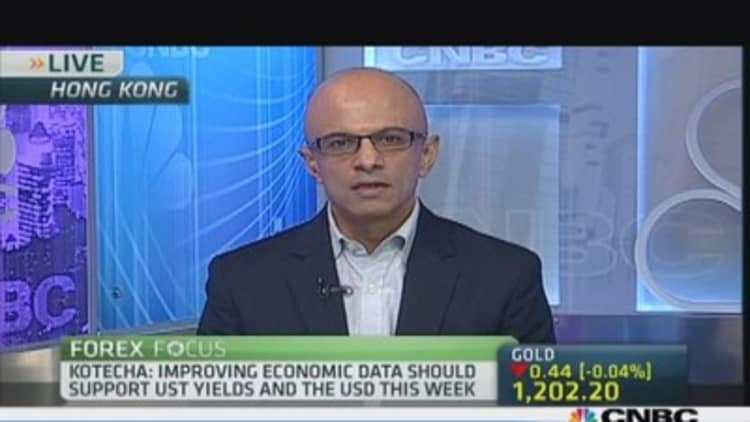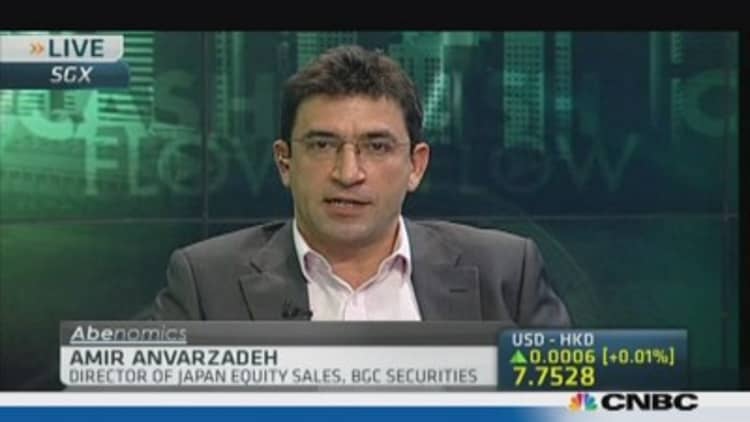Christmas may not be a public holiday in Japan, but Santa still came early for many Japanese investors, with the benchmark index topping 16,000 on Tuesday for the first time since November 2007. The index ended below those levels but still posted a six-year closing high for the second time this week.
The index has outperformed its global peers this year following the introduction of Abenomics - a series policy of measures rolled out under Prime Minister Shinzo Abe aimed at breathing life back into the Japanese economy. Year-to-date, the Nikkei has notched up gains of 53 percent and is set for its best annual rise since 1972, according to data from Thompson Reuters.
(Read more: )
Tuesday's rise follows the continued rise in U.S. stocks, which notched their 48th record-high close of the year on Monday. Also adding to positive sentiment was the Japanese government's monthly economic report, which excluded the term "deflation" for the first time in four years when describing its economy, an indication that the nation's 15-year trend of declining prices has finally run its course.
"We are looking for the Nikkei to remain on strong footing going forward. The BOJ (Bank of Japan) will continue to ease policy further, creating a suitable environment for a weak yen, which will be positive for the Nikkei," Mizuho Bank's senior economist Vishnu Varathan told CNBC.
(Read more: Is Japan's newbaseball record a home run for Abenomics?)

"We're not looking for a major rally beyond 17,000 but rather we expect the index to average around 16,300 to 16,500 for next year," Varathan added.
While many traders expect the short-yen trade - the usual suspect behind the majority of the Nikkei's gains - to continue supporting stocks next year, they warn of one potential risk.
"One vulnerability for a market correction is the buildup of short yen positions. If risk appetite wanes once the [Federal Reserve's] taper kicks in or due to geo politics, then short yen positions could unwind in a big way and that could have a knock-on impact on Nikkei," Varathan added.
(Read more: Sofar, Abenomics is 'close to a bull's eye')
A weaker currency increases the value of repatriated earnings for manufacturers, making them cheaper in comparison to other goods.

Ilya Spivak, currency strategist at FXCM, sees a chance of yen strength in the first quarter of next year, which could derail the Nikkei's optimism.
(Read more: And the next driver for Japan stocks is… )
"Taper was so late in the year that risk sentiment didn't really get a chance to respond in a real way. And I think there's still a possibility that we're going to see that. If that sees the unwinding of carry, which is often funded in yen, you might see a rebound in yen as that occurs."
However, traders ultimately expect the yen to hit fresh multi-year lows in 2014.
Kathy Lien, managing director of FX strategy at BK Asset Management, expects interest rate differentials between the U.S. and Japan to take the dollar-yen pair to 108/109, while Mitul Kotecha, head of global markets research Asia at Credit Agricole bank, expects dollar-yen to hit 115 by the end of 2014.
— By CNBC.com's Nyshka Chandran. Follow her on Twitter @NyshkaCNBC

